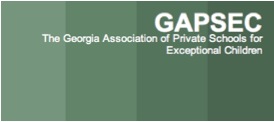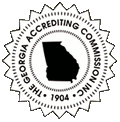Our Students
- Anxiety : “Anxiety is a condition of persistent and uncontrollable nervousness, stress, and worry that is triggered by anticipation of future events, memories of past events, or ruminations over day-to-day events, both trivial and major, with disproportionate fears of catastrophic consequences.” – www.healthofchildren.com
- Attention Deficit Hyperactivity Disorder (ADHD): “A disorder that includes difficulty staying focused and paying attention, difficulty controlling behavior and hyperactivity. Although ADHD is not considered a learning disability, research indicates that from 30-50 percent of children with ADHD also have a specific learning disability, and that the two conditions can interact to make learning extremely challenging.” – Learning Disabilities Association of America
- Auditory Processing Disorder : “Also known as Central Auditory Processing Disorder, individuals with Auditory Processing Disorder (APD) do not recognize subtle differences between sounds in words, even when the sounds are loud and clear enough to be heard. They can also find it difficult to tell where sounds are coming from, to make sense of the order of sounds, or to block out competing background noises.” – Learning Disabilities Association of America
- Dyscalculia : “Affects a person’s ability to understand numbers and learn math facts. Individuals with this type of Learning Disability may also have poor comprehension of math symbols, may struggle with memorizing and organizing numbers, have difficulty telling time, or have trouble with counting.” – Learning Disabilities Association of America
- Dysgraphia : “A person with this specific learning disability may have problems including illegible handwriting, inconsistent spacing, poor spatial planning on paper, poor spelling, and difficulty composing writing as well as thinking and writing at the same time.” – Learning Disabilities Association of America
- Dyspraxia : “A disorder that is characterized by difficulty in muscle control, which causes problems with movement and coordination, language and speech, and can affect learning. Although not a learning disability, Dyspraxia often exists along with Dyslexia, Dyscalculia or ADHD.” – Learning Disabilities Association of America
- Dyslexia : “Dyslexia is a specific learning disability that is neurobiological in origin. It is characterized by difficulties with accurate and/or fluent word recognition and by poor spelling and decoding abilities. These difficulties typically result from a deficit in the phonological component of language that is often unexpected in relation to other cognitive abilities and the provision of effective classroom instruction. Secondary consequences may include problems in reading comprehension and reduced reading experience that can impede growth of vocabulary and background knowledge.” – International Dyslexia Association
- Executive Functioning Weakness : “An inefficiency in the cognitive management systems of the brain that affects a variety of neuropsychological processes such as planning, organization, strategizing, paying attention to and remembering details, and managing time and space. Although not a learning disability, different patterns of weakness in executive functioning are almost always seen in the learning profiles of individuals who have specific learning disabilities or ADHD”. – Learning Disabilities Association of America
- Language Processing Disorder: “A specific type of Auditory Processing Disorder (APD). While an APD affects the interpretation of all sounds coming into the brain (e.g., processing sound in noisy backgrounds or the sequence of sounds or where they come from), a Language Processing Disorder (LPD) relates only to the processing of language. LPD can affect expressive language (what you say) and/or receptive language (how you understand what others say).” – Learning Disabilities Association of America
- Memory Difficulties : “Three types of memory are important to learning, “working memory”, “short term memory” and “long term memory.” All three types of memory are used in the processing of both verbal and non-verbal information.
- “Working memory” refers to the ability to hold on to pieces of information until the pieces blend into a full thought or concept. For example, reading each word until the end of a sentence or paragraph and then understanding the full content.
- “Short-term memory” is the active process of storing and retaining information for a limited period of time. The information is temporarily available but not yet stored for long-term retention.
- “Long-term memory” refers to information that has been stored and that is available over a long period of time. Individuals might have difficulty with auditory memory or visual memory.”
– Learning Disabilities Association of America
- Non-Verbal Learning Disability : “A disorder which is usually characterized by a significant discrepancy between higher verbal skills and weaker motor, visual-spatial and social skills. A child with NVLD has trouble interpreting nonverbal cues like facial expressions or body language and may have poor coordination.” – Learning Disabilities Association of America
- Self-Esteem : Many students’ self-confidence and self-esteem have suffered due to academic, social, and behavioral struggles stemming from their learning or developmental differences.
- Sensory Processing Disorder: “Sensory Processing Disorder (SPD, formerly known as “sensory integration dysfunction”) .is a condition that exists when sensory signals don’t get organized into appropriate .responses. A person with .SPD finds it difficult to process and act upon information received through the senses, .which creates challenges in performing countless everyday tasks.” – SPD Foundation
- SPD can be divided into three major groups (information from inservice by Carol Kranowitz and Paula Aquilla):
- Sensory Modulation Problems: a problem with inhibition-excitation balance – over or under responsive to certain sensory inputs; seeking/avoiding certain sensory inputs
- Sensory Discrimination Problems: brain muting/magnifying messages inappropriately, leading to difficulty distinguishing one sensation from another, judging the intensity of stimuli, interpreting a particular sensation, and misgauging the importance of objects and experiences
- Sensory-Based Motor Problems: 1) Postural Disorder (low muscle tone, bilateral coordination impairment, equilibrium problems, “W” sitting on the floor, clumsiness, impaired grip strength; 2) Dyspraxia: difficulty performing voluntary intentional coordinated activities
- SPD can be divided into three major groups (information from inservice by Carol Kranowitz and Paula Aquilla):
- Social Skills : The skills needed to interact with others, both verbally and non-verbally
- Visual Perceptual/Visual-Motor Deficit : “Affects the understanding of information that a person sees, or the ability to draw or copy. A person with visual perceptual/visual-motor deficits may miss subtle differences in shapes or printed letters, lose place frequently, struggle with cutting, holding pencil too tightly, or poor eye/hand coordination.” – Learning Disabilities Association of America
What Our Students Say about Porter Academy
- “The kids here are nicer than at my old school, the teachers help me in classes more, and people understand me here.” – Middle School Student
- “A year ago I didn’t like writing. Now I know I have wonderful ideas and I know how to write them down.”
- “I felt left out in my other school. I felt like everyone was smarter than I was. Mrs. Porter helped me to understand how I could become a better reader.”
- “The teachers help me and now I am ahead of where I was at my old school in my work. I know math more than I used to know, and the teachers and principals listen to me when I have a problem.” – Middle School Student
- “This is the one school that understands kids with learning disabilities.” – Upper School Student
- “I like Porter. Ms. Amanda does fun projects. I made lots of friends. They understand when my body moves too fast.” – Lower School Student
- “Thank you for sending me to Porter Academy. The teaching is fantastic, the school is very flexible, I am becoming smarter, and the teachers are very nice.” – Upper School Student
- “I’m making new friends. Porter is more fun than my last school. I’m learning more stuff. I know 10+10=20 and I love school!” – Lower School Student
- “Thank you for sending me to Porter Academy. The teaching method of most of the teachers is great. They also help you in study hall one-on-one. The school can also be very flexible. I also like that the teachers know all our weak and strong points.” – Upper School Student
- “I’ve gotten better at doing my homework and getting my homework in on time. Porter has helped me with math and reading.” – Upper School Student
- “With iLs on, you can do it easier because you can concentrate more.” – Lower School Student
- “This school is more fun than any other school.” – Upper School Student
- “I love this school. I want to stay here.” – Prospective Lower School Student
- “I have a lot more friends here at Porter Academy than at every school I’ve been to. Porter helped me know how to read better and write.” – Upper School Student
- “Porter Academy makes me happy to do my homework.” – Upper School Student
- “I’m learning new things that I enjoy. I’m making new friends. I am learning how to type without looking at the keyboard. Also, I am learning words I don’t know.” – Upper School Student
- “Porter Academy has helped me. Now I like cursive and multiplication. It helped me read, and it helped me make new friends.” – Upper School Student
- “I like math, science, and social studies. I like it here because I am learning. It is fun to learn here and do new stuff.” – Upper School Student
- “I like Porter Academy because I have less trouble reading and spelling. I also made a lot of new friends. I have great teachers.” – Upper School Student
- “I like Porter Academy because people like to be around me now.” – Upper School Student
- “I like school because I made a few friends. I love my teachers because they are super nice. I love what I am learning in classes. My teachers care about me too. I can play outside and run around with my friends.” – Upper School Student
Students’ Favorite Things
- “I like reading Clues in the Woods with Mrs. Porter” – Upper School Student
- “My favorite thing is getting Safari Bucks” – Upper School Student
- “I like to do OT. It is fun to play with the beach ball, the balance board, and the beanbag toss. My favorite thing is the swing.” – Upper School Student
- “I like going to the school store.” – Lower School Student
- “I like Porter Academy because I do iLs. It helps me a lot.” – Upper School Student
- “We get hugs together” – Lower School Student
Student Interview with David
David, this is your second year at the Porter School. When you first came here, how did you feel about reading? I felt left out in my other school. I felt like everyone was smarter than I was. They put all the kids who they thought were not very smart in a room with another teacher.
What were you reading in the Porter School? I was starting on kindergarten level books. I was beginning to learn phonics. I didn’t feel like I could read at all.
How did you learn phonics? Mrs. Porter helped me to understand how I could become a better reader. We worked on Primary Phonics and Earobics.
How much did you read at home in the last year? I’m reading a whole lot more than last year. I read 4,223 minutes over the summer. I am reading Harry Potter, books about sharks, and Goosebumps.
How did this affect your tremendous progress in reading in such a short period of time? The more I read the easier and more fun reading becomes.
How did you write a year ago? A year ago I didn’t like writing. Now I know I have wonderful ideas and I know how to write them down. Today I’m writing my own newspaper about the airplane crashes.
How do you feel about your work? I was worried if I could do a good job. When I was finished I felt proud.
Story of a Person whom I consider a Hero
By Kathryn Bennet (a graduate of Claudia Porter)
This is a story of a lady who worked at a school. She taught a small class at this school that was aimed at kids who needed an extra hand at school. She taught this class for a number of years before embarking on a new adventure of starting her own school. She had a lot of courage to leave the environment she had known for so long and go out on this new journey, because she felt she could better teach the children if she was in charge of the whole learning experience.
This special lady has touched so many lives; those of her family and friends and especially those whom she has taught. She has helped them to learn about themselves, about their strengths and the areas that they need to improve in. She lets them know that they are all special people and should not be ashamed at who they are.
She not only is their teacher, but once they have grown out of the class/school, she is there for them to give them advice or is just there for them as a friend; a person to look up to. This lady has been a great inspiration to me. She has been there for me ever since I grew out of her class in June 1994. She has been there silently watching over me growing and learning.
When I heard the news that she had started her own school, it really hit home with me that she had gotten up the courage to achieve a goal that obviously meant a lot to her. This has really shown me that anything is possible, and now I am really able to believe this because the person that I look up to and consider my hero has achieved her goal and I now know with all of my heart that I can too.
Where Students Go After Porter Academy
Public School (with and without IEP services)






